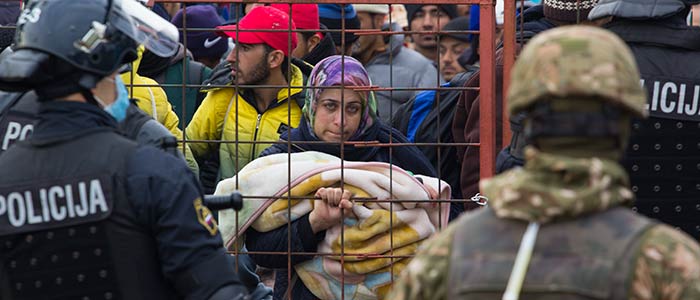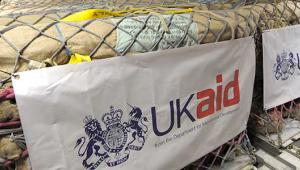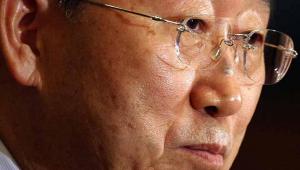At an evidence session on Syrian refugees, the MPs were told that combining responses to humanitarian, development and growth needs is necessary to form sustainable, long-term responses to the refugee crisis stemming from Syria and elsewhere.
Nicholas Grisewood, the International Labour Organisation’s technical specialist on crisis migration, said “we need to look at how we move away from a dependent, welfare-type humanitarian approach” towards one that makes the most of the employment opportunities in development projects such as infrastructure and elsewhere.
He said that, while employment may not be the reason people move in the first place, the importance of jobs and livelihoods for refugees becomes apparent at an early stage.
This is now becoming a structural issue for host countries and beyond too, he said, with the employment problem creating instability in countries neighbouring Syria, causing a rise in child labour and onward migration creating chaos in Europe.
It is important to find ways to overcome the longer-term impact on public services, which cannot continue “at infinitum with humanitarian aid to support them” ‒ economic growth is needed to do this in the long run.
Refugees need to be able to contribute, otherwise a considerable amount of external money will need to be poured into these economies, he added.
He commended countries such as Germany that are trying to find ways to do this, but he was sceptical about the contribution of ‘special economic zones’ for SMEs to keep refugees employed. These have been set up in countries such as Jordan but Grisewood predicted they would only be viable in the short term, as long as funding lasts.
Special economic zones do not work in already stressed economies, he added, and are not sustainable in the long term unless set up in a context of economic growth.
Grisewood acknowledged the efforts to persuade countries such as Jordan to allow refugees to work, but said the problem is about more than simply opening the labour market or offering work permits.
Doing so could lead to “further chaos in an already chaotic situation” he said, and could result in further destabilisation in the region. The opening of the labour market needs to be aligned with principles of sustainability and growth, he argued.
More data, knowledge and discussion is needed to identify opportunities and capitalise on potential where it is not being utilised. For example, Jordan is planning a large railway network that provides opportunities for refugee employment both during construction and in longer-term maintenance.
Desmond Swayne, the UK’s minister of state for international development, agreed that offering development opportunities to host countries and getting refugees into work is essential. But he told the committee he would be “suspicious” of large, centrally planned and government-driven projects.
Swanye said he was “all for” international financial institutions funding large infrastructure projects as part of the deal, but sees the engine coming from “export-led growth”, perhaps using special economic zones, where both foreign and domestic private sector investment can be expected.














